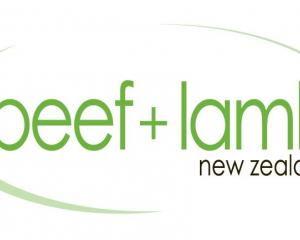
Mr Waterston is farm manager for the historic Welford Park Estate at Berkshire, the backdrop for the TV series The Great British Bake Off.
The farming operation has 670ha in arable crops with another 200ha in permanent pasture managed by a grazier under contract.
Brexit spelled the end of European Union subsidies to UK farmers for producing food and stock feed.
They have been replaced by payments for a multitude of on-farm environmental initiatives.
The invasive crop weed black-grass as well as the loss of traditional crop chemistry was also forcing UK farmers to change their rotation and management, he told about 300 people attending the Foundation for Arable Research’s ARIA field day at its Chertsey Arable Research site near Ashburton.
Since 2020, he has been an arable monitor farmer with the UK Agricultural and Horticultural Development Board (AHDB).
His focus is reducing the use of chemical inputs and machinery and combining sustainable farming methods.
Welford Park’s rotation is wheat, winter beans and oilseed rape, with spring barley introduced to control black-grass.
Cover crops are now grown on all land destined for spring cropping.
"We get paid by the government for this.
"We are subsidy junkies in the UK.’’
Welford Park received an annual income of $71,000 for these cover crops as well as a nectar and flower mix, flower rich margins and plots, and permanent grassland.
This figure rose to $95,000 with the addition of "capital’’ items such as planting hedges and trees and fencing.
A further $50,000 comes in each year from another fund which rewards woodland improvement and management and the restoration of park land.
"There’s money there to be had, so why not have it?’’
He said this was changing agriculture in the UK, especially as arable farmers, including himself, were struggling to grow break crops like oilseed rape and pulses.
The last good oilseed rape harvest at Welford Park was in 2017, before access to neonicotinoid seed dressings was removed, he said.
With farmers receiving a guaranteed income for growing a multi-species cover crop, many were now switching from a traditional break crop to a cover crop/herbal ley.
His cover crop of choice includes vetch, linseed, buckwheat, Berseem clover, oil radish and phacelia. However, he was not convinced that the environmental payments would go on forever.
"The worry is that we have an election next summer and with concerns about where the money is going to come from, the next government could change the rules.’’
He also issued a strong warning to New Zealand growers about the dangers of letting black-grass take hold.
"It will ruin your farm. Black-grass is a very intelligent plant and is now germinating all year round which it never used to do.’’
Before the pest arrived, Welford Park’s traditional rotation was winter wheat, winter barley and oilseed rape, but with it spiralling out of control in 2015, a lot of other crops have been introduced.
The farm was finally getting black-grass under control.
Welford Park ditched the plough in 2012, replacing it with a direct drill and a strip till drill.
This had led to a 50% reduction in tractor hours.
"We are working towards getting the soil biology right so we can fully utilise nitrogen in the soil.’’
The farm is also working on ways of managing with fewer, or no fungicides.
With increasing disease resistance to chemistry, a trial aimed at growing winter wheat without fungicide.
A wheat variety with a high disease resistance rating was used and instead of fungicide, nitrogen fixing and phosphate solubilising microbes and a cocktail of trace elements were applied.
"We were ultimately looking to optimise nutrition to support the plant’s defence system.’’
While there was only a subtle difference in colour between the treated and non-treated fields, the fungicide-treated paddock was higher yielding.
"I am not sure what is happening, and whether the fungicide is bringing the yield to the table.’’
In 2021, Welford Park signed up to Agreena, a certified soil carbon offsetting scheme for farmers using regenerative agricultural practices.
The scheme provides a commercial opportunity from sequestering carbon in soils.
The platform allows farmers to track carbon sequestration through the year and take steps to improve it. Then, once a harvest is over, soil carbon storage measurements are independently verified, with certificates issued which can then be sold.
For harvest 2021, Welford Park received $82,000 for carbon sequestration. Calculations showed emissions of 2450 tonnes CO2e per year were offset by -4925 t CO2e sequestered, resulting in a carbon balance of -2474 t CO2e. Harvest 2022 looks to be much less.
During questions at ARIA, a farmer asked about the profitability of Welford Park’s farming operation once subsidies were removed.
Mr Waterston agreed there was no hope if farmers were only making money because of government support.
He said growers needed a better return for grain.
Average UK yields for wheat are 8.2 tonne/ha, so it was a challenge considering the cost of machinery and inputs.
"The farm is holding its own and historically if we have a bad year then the subsidies are your profit.’’
Another farmer commented that in New Zealand, the only thing farmers were rewarded for was production, "so we are very production orientated’’.
He was asked which practice he would continue even without subsidies.
Mr Waterston replied he would keep the ground covered at all times.
"It stops soil drying out and encourages beneficials, but there is more slug pressure.
"It definitely changes the whole dynamic, but it is not easy.’’















